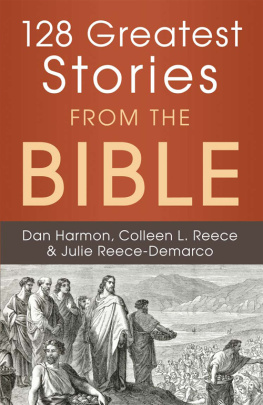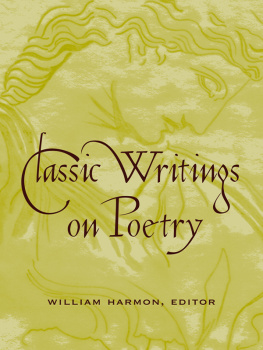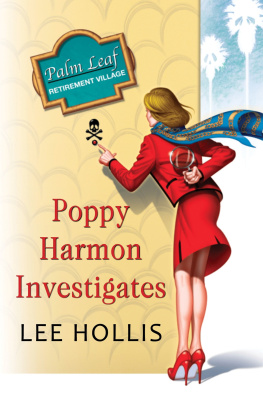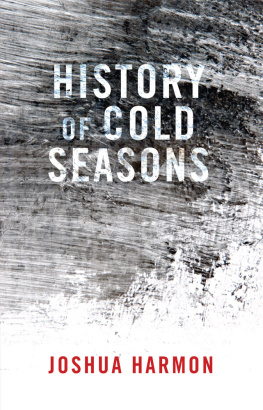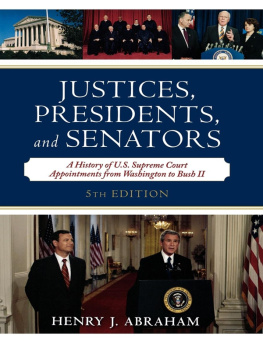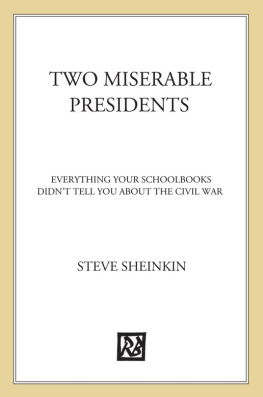F Harmon - Presidents versus Senators
Here you can read online F Harmon - Presidents versus Senators full text of the book (entire story) in english for free. Download pdf and epub, get meaning, cover and reviews about this ebook. year: 2021, publisher: McFarland & Company, Inc., Publishers, genre: Politics. Description of the work, (preface) as well as reviews are available. Best literature library LitArk.com created for fans of good reading and offers a wide selection of genres:
Romance novel
Science fiction
Adventure
Detective
Science
History
Home and family
Prose
Art
Politics
Computer
Non-fiction
Religion
Business
Children
Humor
Choose a favorite category and find really read worthwhile books. Enjoy immersion in the world of imagination, feel the emotions of the characters or learn something new for yourself, make an fascinating discovery.

Presidents versus Senators: summary, description and annotation
We offer to read an annotation, description, summary or preface (depends on what the author of the book "Presidents versus Senators" wrote himself). If you haven't found the necessary information about the book — write in the comments, we will try to find it.
Presidents versus Senators — read online for free the complete book (whole text) full work
Below is the text of the book, divided by pages. System saving the place of the last page read, allows you to conveniently read the book "Presidents versus Senators" online for free, without having to search again every time where you left off. Put a bookmark, and you can go to the page where you finished reading at any time.
Font size:
Interval:
Bookmark:
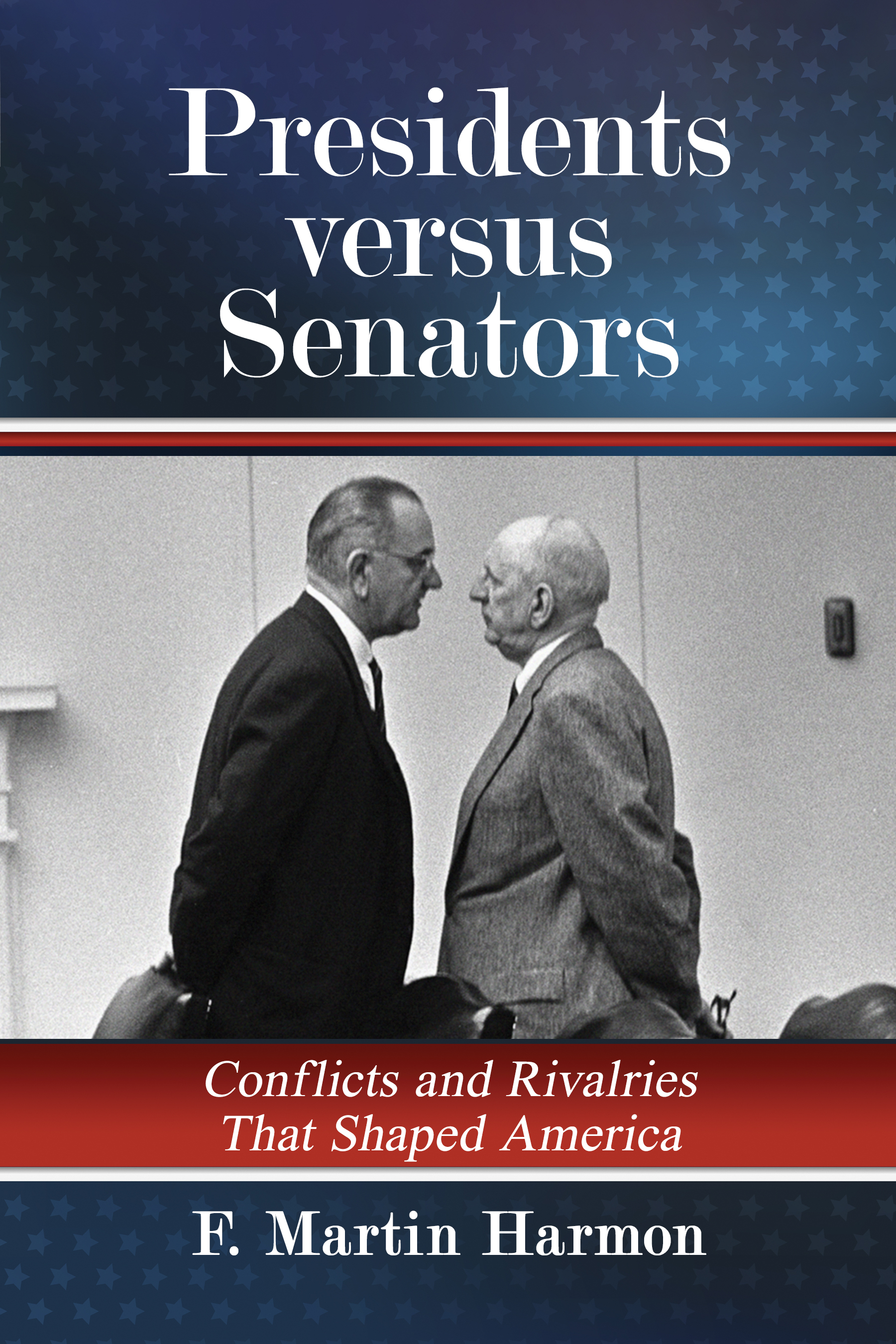
Presidents versus Senators

McFarland & Company, Inc., Publishers
Jefferson, North Carolina
Library of Congress Cataloguing-in-Publication Data
Names: Harmon, F. Martin, 1951 author.
Title: Presidents versus senators : conflicts and rivalries that shaped America / F. Martin Harmon.
Description: Jefferson, North Carolina : McFarland & Company, Inc., Publishers, 2021 | Includes bibliographical references and index.
Identifiers: LCCN 2021035150 | ISBN 9781476683140 (paperback : acid free paper)
ISBN 9781476643410 (ebook)
Subjects: LCSH: United States. Congress. SenateHistory. | Executive-legislative relationsUnited States. | PresidentsUnited StatesHistory. | LegislatorsUnited StatesHistory. | United StatesPolitics and government. | BISAC: HISTORY / United States / General | POLITICAL SCIENCE / American Government / General
Classification: LCC E183 .H324 2021 | DDC 328.73/07456dc23
LC record available at https://lccn.loc.gov/2021035150
British Library cataloguing data are available
ISBN (print) 978-1-4766-8314-0
ISBN (ebook) 978-1-4766-4341-0
2021 F. Martin Harmon. All rights reserved
No part of this book may be reproduced or transmitted in any form or by any means, electronic or mechanical, including photocopying or recording, or by any information storage and retrieval system, without permission in writing from the publisher.
Front cover image: Known for his confrontational style of politics, Lyndon Johnson could even resort to the same tactics with allies, as was the case after becoming president when he met with old friend and mentor Georgia Senator Richard Russell to let him know in no uncertain terms that he intended to pass meaningful civil rights legislation over the objections and obstruction of Russells Southern Bloc in the Senate (courtesy LBJ Presidential Library, W98-30)
Printed in the United States of America
McFarland & Company, Inc., Publishers
Box 611, Jefferson, North Carolina 28640
www.mcfarlandpub.com
To the memory of George Norris, a truly great senator from Nebraska between 1913 and 1943, who always put country ahead of party, as well as more recent bipartisan Senate greats like Lyndon Johnson of Texas, Mike Mansfield of Montana, Everett Dirksen of Illinois, Howard Baker of Tennessee, Ted Kennedy of Massachusetts, and John McCain of Arizona. Would that their spirit of bipartisan understanding could bring a rebirth for America.
As a former sportswriter at two daily newspapers for seven years and a sports communications professional at three different state universities for more than 22, I am well versed in the integral role rivalries play in the American athletic landscape. No matter the level of competition, rivalries inspire a greater intensity for any athletic contest. And under the canopy of major pro and/or college sports, it doesnt require die-hard fandom to recognize our most renowned, athletic rivalriestraditional confrontations like PackersBears, YankeesRed Sox, CowboysRedskins, GiantsDodgers, CelticsLakers, MichiganOhio State, AuburnAlabama, or North CarolinaDuke. The mere mention of those rivalries prompts images of big games past that live on through constant reminders and annual hype.
By contrast, all-time political rivalries are not so much remembered by the individuals involved as by the issues. Usually these have been started by an influential senator of the opposition party taking on the White Housesomeone with the public persona and political clout to directly challenge the president. It has made for some of Americas most intense political conflicts, with presidents emerging victorious most of the time, but not always.
The rivalries and issues to be covered here commence with the rise of congressional influence and populist impact following the War of 1812, sometimes referred to as Americas Second Revolution, and illustrated by the partisan divide over such things as a National Bank. They are continued through the battle over slavery and its expansion; emancipation and the aftermath of racially motivated, sectional civil war; the international transition brought on by U.S. involvement in World War I; the repeated threats and suspicion of communist infiltration of our federal government after World War II; the final move towards actual racial civil rights in America; and the controversial give-away of one of our most celebrated accomplishments and prized possessions, the Panama Canal.
Sources for such legendary battles abound. From biographies of the great and would-be great men who waged these protracted political showdowns, to detailed examinations of each historic episode, and from period overviews of some of our most famously defined American eras and specific institutional histories, to related books that either set the stage or confirm the results.
Among the biographies used were a series on Andrew Jackson, Henry Clay, and Daniel Webster by Robert Remini, undoubtedly one of the foremost historians of the Jacksonian Era (1820s and 30s); three on Abraham Lincoln, including one by two-time Pulitzer Prize winner David Donald Herbert titledsimply Lincoln ; as well as recognized bios of presidents Andrew Johnson, Woodrow Wilson, and Harry Truman, and a Pulitzer winner titled with just another last name Truman by yet another two-time Pulitzer recipient, David McCullough. Add to those accepted biographies on the administrations of presidents Jimmy Carter and Lyndon Johnson, and the careers of senators Charles Sumner, Joseph McCarthy, and Richard Russell, and you get the idea of how much attention was paid to the vast array of biographical works available from the nearly 150-year span of American history covered in this book.
Additionally, targeted histories like The Rise and Fall of the American Whig Party by Michael Holt; Almost President: Men Who Lost the Race but Changed the Nation by Scott Farris; Reconstruction: Americas Unfinished Revolution by Eric Foner; Paris 1919: Six Months That Changed the World by Margaret MacMillan; The Wise Men: Six Friends and the World They Made by Walter Isaacson and Evan Thomas; and most recently Heirs of the Founders: Henry Clay, John Calhoun, and Daniel Webster, the Second Generation of American Giants by H.W. Brands are all examples of the wide ranging support sources used to fill in blanks of each of the major political battles examined here.
Each confrontation has been examined in three parts, with the first involved in setting the stage for the battle; the second a chronological breakdown of the events that occurred during each battle; and the third a summation of the results of those famous Washington warswinners and losers and what it meant for the country in the aftermath.
The battle over a National Bank of the United States in the countrys post-colonial, still formative years; the escalating battle over slavery and its expansion into the Western territories during the 1850s; the battle over Reconstruction and the rights of African American freedmen in the postCivil War South; the battle over the League of Nations and whether or not the United States should continue foreign entanglements following World War I; the battle over the supposed threat of communist infiltration into our government during the Cold War; the battle over civil rights and voting rights as a result of the Civil Rights Movement of the 1960s; and the controversial decision and battle over returning the Panama Canal to the nation of Panama. Those are the great president versus senator battles this book is about, or, more specifically, the great personal and political rivalries that turned those issues into transformative Washington wars.
Font size:
Interval:
Bookmark:
Similar books «Presidents versus Senators»
Look at similar books to Presidents versus Senators. We have selected literature similar in name and meaning in the hope of providing readers with more options to find new, interesting, not yet read works.
Discussion, reviews of the book Presidents versus Senators and just readers' own opinions. Leave your comments, write what you think about the work, its meaning or the main characters. Specify what exactly you liked and what you didn't like, and why you think so.

